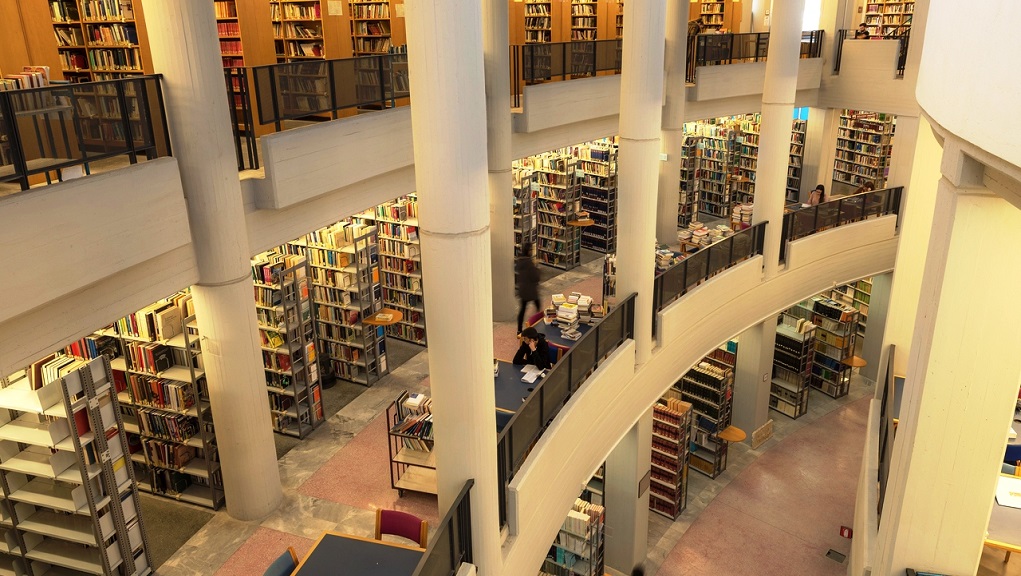Crete, the largest of the Greek islands, boasts a rich cultural heritage that spans millennia. Among its many treasures are its historical libraries, which house invaluable collections of manuscripts, books, and documents that chronicle the island’s storied past. These libraries are not just repositories of knowledge but also symbols of Crete’s intellectual legacy. Promoting Cretan historical libraries is essential to preserving this heritage, attracting scholars and tourists, and fostering a deeper appreciation of the island’s history and culture. This article explores strategies for effectively promoting Cretan historical libraries to a global audience.
Understanding the Importance of Cretan Historical Libraries
Cretan historical libraries hold significant value for both the local community and the international scholarly community. They preserve rare manuscripts, ancient texts, and historical documents that provide insights into the island’s past, from the Minoan civilization to the Byzantine, Venetian, and Ottoman periods.
Cultural and Educational Significance
- Preservation of Heritage: These libraries safeguard a wealth of cultural and historical knowledge, ensuring that future generations can access and learn from these invaluable resources.
- Academic Research: Scholars from around the world visit Cretan libraries to study their unique collections, contributing to academic research in fields such as history, literature, theology, and anthropology.
Key Libraries in Crete
Several libraries in Crete are renowned for their historical collections and contributions to the preservation of cultural heritage.
The Vikelea Municipal Library of Heraklion
- Historical Manuscripts: The Vikelea Library houses an extensive collection of historical manuscripts, rare books, and periodicals, offering a rich resource for researchers.
- Cultural Events: The library frequently hosts cultural events, lectures, and exhibitions, making it a vibrant center for intellectual and cultural exchange.
The Monastery Libraries
- Arkadi Monastery: The library at Arkadi Monastery is known for its collection of religious texts, manuscripts, and historical documents related to the monastery’s role in Cretan history.
- Toplou Monastery: This monastery’s library contains valuable manuscripts and books that reflect the spiritual and cultural life of Crete over the centuries.
Promoting Cretan Historical Libraries
Effective promotion of Cretan historical libraries involves a combination of digital marketing, educational outreach, partnerships, and community engagement. Here are key strategies to consider:
Digital Marketing
- Website Development: Creating comprehensive, user-friendly websites for each library is essential. These websites should feature detailed information about the library’s collections, history, visiting hours, and upcoming events. Virtual tours and high-resolution images of notable manuscripts can enhance the online experience.
- Search Engine Optimization (SEO): Implementing SEO strategies will help these websites rank higher in search engine results, increasing visibility and attracting more visitors.
- Social Media Presence: Utilizing social media platforms like Facebook, Instagram, and Twitter can help reach a broader audience. Regular posts featuring interesting facts, historical insights, and event announcements can engage followers and generate interest.
Educational Outreach
- Collaborations with Schools and Universities: Partnering with educational institutions to organize field trips, research projects, and workshops can introduce students to the libraries’ resources and foster a deeper appreciation for Cretan history.
- Lectures and Seminars: Hosting lectures and seminars by historians, scholars, and authors can attract both local and international audiences. These events can be promoted through academic networks and social media.
Storytelling and Content Creation
- Highlighting Unique Collections: Creating engaging content that highlights unique and rare items in the libraries’ collections can captivate potential visitors. Stories about the significance of these items and the history they reveal can be shared through blogs, videos, and social media posts.
- Video Documentaries: Producing high-quality video documentaries that explore the history and treasures of Cretan libraries can be an effective way to reach a global audience. These documentaries can be shared on platforms like YouTube and Vimeo.
Partnerships and Collaborations
- Cultural Institutions and Museums: Collaborating with cultural institutions and museums can enhance the libraries’ visibility. Joint exhibitions, cultural events, and research projects can attract a diverse audience.
- Tour Operators and Travel Agencies: Partnering with tour operators and travel agencies to include library visits in cultural and historical tours can draw tourists who are interested in exploring Crete’s intellectual heritage.
Community Engagement
- Local Events and Festivals: Participating in local cultural events and festivals can help raise awareness of the libraries within the community. Hosting special events, such as book fairs and literary festivals, can attract visitors and foster community involvement.
- Volunteer Programs: Developing volunteer programs that involve the local community in the libraries’ activities, such as cataloging, guided tours, and educational programs, can build a sense of ownership and pride.
Sustainable Practices and Preservation
Ensuring the sustainability of Cretan historical libraries involves implementing practices that protect and preserve their collections for future generations.
Conservation Efforts
- Restoration Projects: Investing in the restoration and preservation of manuscripts and books is crucial. Collaborating with international conservation experts can secure funding and expertise for these projects.
- Digital Archives: Creating digital archives of the libraries’ collections can provide a backup in case of physical deterioration and make these resources accessible to a global audience.
Sustainable Tourism
- Eco-Friendly Practices: Promoting eco-friendly tourism practices, such as using digital guides instead of printed materials and encouraging responsible visitor behavior, can help protect the libraries and their collections.
- Educational Campaigns: Educating visitors about the importance of preserving historical documents and the role of the libraries can encourage respectful behavior and support for conservation efforts.
Conclusion
Promoting Cretan historical libraries involves a multifaceted approach that leverages digital marketing, educational outreach, partnerships, and community engagement. By highlighting the unique collections, cultural significance, and educational value of these libraries, we can attract a global audience and foster a deeper appreciation of Crete’s rich intellectual heritage. Ensuring the sustainability and preservation of these libraries is essential for maintaining their role as custodians of knowledge and culture. Through these strategies, Cretan historical libraries can continue to inspire and educate future generations, preserving the island’s legacy for years to come.


